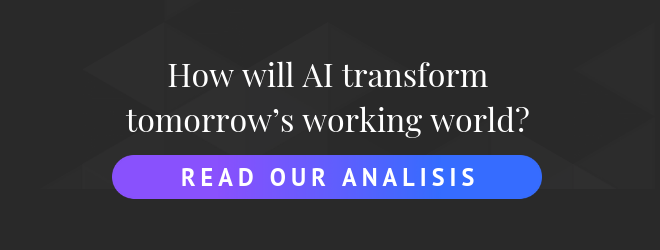The development of robotics will (as we saw in Part One) create many jobs based on relationships between people and machines. These relationships will also raise unprecedented legal challenges, opening a new chapter in the history of law. At the same time, the multiplication of data and their processing by artificial intelligence software will create new opportunities around theircollection from marketing to management. Finally, artificial intelligence will also boost the creativity of engineers and artists. Each time, man’s abilities and inventiveness will be enhanced by machines.
Personal Data Broker
Génération Libre, a think tank in France, has just published a report advocating for private property rights for individuals on their personal data. Its president, Gaspard Koenig, wants citizens of the future to be able to decide which data they want to sell to businesses and at what price as well as which data they can keep for themselves. Génération Libre is not the only organization to defend this idea. The Datum.org startup wants to allow individuals to market their data via the blockchain. In the future, the data market could become dynamic, complex and highly lucrative. Individuals who want to get the most out of their personal data will be able to call on a broker specialized in data sales. As a specialist of the traditional stock exchange, he will be able to easily manipulate artificial intelligence algorithms in order to find the best deals for his/her clients and make the most of their personal data assets.
Robot Lawyer
As autonomous cars take over roads, domestic robots multiply and drones fly over our cities, interactions between humans and machines will become increasingly numerous. And those interactions could include potential collisions and accidents. If the software controlling a self-driving car makes a mistake and causes a traffic accident, who will be responsible? The driver, who didn’t take control in time? The company that marketed the vehicle? The engineers who coded the algorithm? To simplify the legal treatment of this type of event, some have already proposed the creation of “robot rights.” One French lawyer, Alain Bensoussan, wants to set up a legal status for machines, as well as ethical guidelines to govern the creation of artificial intelligence programs.
Municipal Delegate for Public Data Management
One of the foundations of the Smart City of tomorrow is the collection and processing of large amounts of data. Whether it is vehicle flow, public transport use, footfall on a particular street, noise levels in particular neighbourhoods or air quality, the processing of data provides public authorities valuable information about their city and citizens. This data gives them the possibility of developing public policies that draw lessons from this data to improve collective organization. It is therefore very likely that there will be an increase in the number of municipal data policy officers. Their tasks will include both setting up and maintaining the structures responsible for collecting data, supervising algorithms and the engineers responsible for processing them, and taking action based on the information received.
Cyber-Engineer
Tomorrow’s engineers will be able to use artificial intelligence to optimize the creation of manufactured products. They will be able to analyse data from the value chain, consider product design, and quality control on a production lines using machine learning algorithms, which means faster production and fewer defects. Workshops will also be full of sensors to analyze the situation in real time to detect early failures, automatically order spare parts and correct manufacturing defects. Tomorrow’s engineers will be responsible for overseeing the entire ecosystem of machines communicating with each other and responding to any glitches. Other cutting-edge technologies will also make their contribution. 3D printing will make it possible to produce prototypes at a very low cost and test different combinations before mass production starts. In addition, augmented reality will allow engineers to guide the workers, telling them what to do with written information or colour schemes, and what to do about potential issues.
Creator of virtual worlds
The future will be wonderful for the imagination. Through the combination of artificial intelligence and augmented reality, tomorrow’s artists will be able to create immersive and individualized works of art. In the world of video games, for example, it is easy to imagine a system for building a profile for each player based on his or her personal preferences and gambling habits. Then, the game would adapt to them, offering a personalized universe and story, using virtual and augmented reality resources to make this virtual universe more real than reality. Using these tools, designers can give free rein to their creativity. In the artistic field, artificial intelligence and virtual reality will give rise to hybrid creations of a totally new kind. The paintings reviewed and corrected by Deep Dream, Google’s algorithm, recently ignited the canvas. Let’s imagine what an artist could create by combining algorithms and three-dimensional creations to give birth to strange and baroque works…
What do you think about these new jobs? Let us know!

